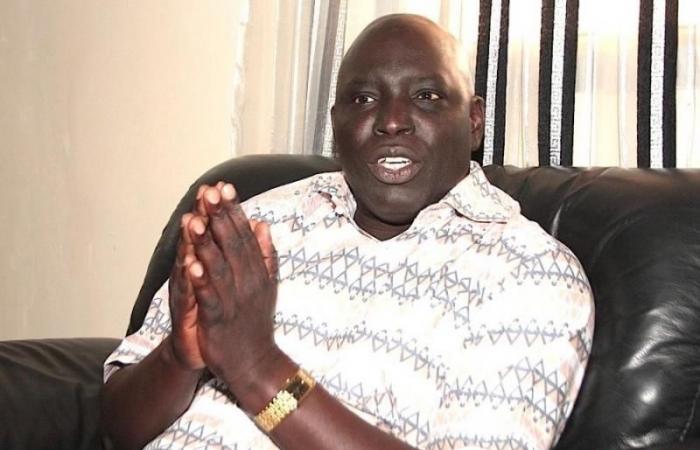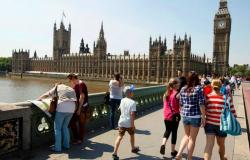The Bloomberg agency revealed, in a dispatch dated June 4, 2024, that Senegal raised, on the international capital markets, a whopping 750 million US dollars, or 450 billion CFA francs. The information was widely relayed by the media. The government then deigned, in a press release dated June 6, 2024, to confirm the information, stressing that it had carried out the operation “successfully”. The Civil Forum organization, which is committed to transparency in the management of public affairs, questioned, through its coordinator, Birahim Seck, the conditions for carrying out this operation. “The Minister of Finance and Budget must educate us on the choice of JP Morgan London. The problem of transparency of intermediation remains,” he asks. The government has not yet provided any response to this public inquiry. A priori, we could be lenient towards this operation because, from the installation of the government led by Prime Minister Ousmane Sonko, voices, the most authoritative, suggested that the financial situation inherited from the Macky Sall regime was catastrophic and we had to be in a hurry to find financial resources.
However, on April 11, 2024, the new regime had collected 324 billion CFA francs, the fruit of a loan guaranteed by the African Development Bank (AfDB) and authorized by the IMF, in December 2023, to make it possible to get through the first quarter. of 2024 marked by an electoral period.
The hidden operation, even at the IMF: A scandal!
The objections raised regarding the operation to raise 450 billion CFA francs were simply ignored. Thus, the fact that Senegal has this time borrowed at the most expensive rate in its debt history, namely 7.75%, awarded to investors, over such a short maturity of seven years, should not be surprising. What is the final rate if we include commissions and other intermediation costs kept confidential? The government stressed that it had raised the funds to devote two thirds to “further optimizing debt service”. Who knows the logic of borrowing at the most expensive rates, to repurchase less expensive debts! Brilliant Senegalese economists, who often spoke about these issues, suddenly fell silent. No one is trying to insist on knowing under what conditions the intermediary bank JP Morgan was chosen, without any call for competition, and that the operation presented as a Eurobond is not and turns out to be rather a banal investment operation. direct bonds from Senegal to targeted investors. In a classic Eurobond operation, of the style of those carried out in recent weeks by Ivory Coast, Benin and Kenya, and by Senegal under the regimes of Abdoulaye Wade and Macky Sall, transparency is essential on the terms of choice of the advisory bank, intermediation fees and commissions paid. Better still, “a road show” is organized for potential subscribers, with the assistance of public international financial institutions. The modus operandi of a Eurobond would require prior publicity of the operation and that the subscribers propose, during a public session, financing rates displayed on the screen, which the requesting country assesses and negotiates before distributing the portfolio according to its own assessment criteria. The public is informed, right down to the nomenclature of debts repurchased on occasion! This is really not the case with the first operation to raise private financing that the Minister of Finance and Budget, Cheikh Diba, has just carried out, outside of regional financial markets. JP Morgan only had to approach its privileged clients, and traditional investors who were not consulted or approached are pouting in frustration. Other curiosities that could reinforce suspicion are also noted. The former British Prime Minister, Tony Blair, presented as a Vrp of JP Morgan, was received by President Faye, the day after the “fast track” fundraising operation, while he was once fiercely attacked by Ousmane Sonko. Just a coincidence? In addition, the media were able to reveal that executives in the Pastef party had been, until recently, collaborators of JP Morgan.
The IMF, a “whistleblower” for Ofnac
The mission that an IMF team carried out from June 6 to 19, 2024, for a review of the current program with Senegal (2023-2026), ended with a thunderclap. Edward Gemayel, head of mission, revealed during a press conference in Dakar that “Senegal is going through a period of overfinancing. The country borrowed more than necessary, leading to excess liquidity. He points out that the government currently has more cash than necessary. “This financing surplus mainly results from the issuance of Eurobonds on June 3 and 4, 2024.” What’s done is done, and the IMF therefore seems to have resigned itself to “discussing with the government the use of this overfinancing to carry out liability management operations.” Mr. Gemayel adds, not without flavor: “That is to say, buying back more expensive short-term debt with this longer-term and less expensive liquidity.” However, we will note that the rate of 7.75%, already subscribed to by Senegal, cannot be less costly than the debts to be repurchased! In any case, the principle recommended by the IMF could appear simple and Mesmin KouletVickot, resident representative of the IMF in Dakar, explains it to us in an educational manner: “Senegal borrowed more than necessary for its current needs, thus creating funds surplus available. Liability management involves reducing debt costs and improving long-term financial stability. Excess funds, having lower interest rates and longer maturities, would pay off more expensive debts in the short term and benefit from lower borrowing costs over a longer period. This strategy would make it possible to optimize the debt structure, reduce overfinancing and strengthen debt sustainability.” Question to Mesmin KouletVickot: in clearer language, did Senegal have a vital need to take out this new loan? More or less embarrassed response: “Really not.” Why was the IMF, government advisor, then able to let this happen? The resident representative in Dakar agreed to say: “No, the IMF was not informed in advance of this operation.”
The fact that this operation was carried out behind the back of the IMF is cavalier in nature and adds to the suspicion. Why on earth hide from the IMF and present the financial institution with a fait accompli, when transparency in these big money operations must be total, to avoid, at the very least, any suspicion of illegal taking of interest or payment retro-commissions? Is it simple malice that, in its press release number 24/226 of June 19, 2024, the IMF welcomes the strengthening of the powers and means of action of the National Anti-Corruption Office (Ofnac) and of the protection of “whistleblowers”? Should we fear that this affair will end up hampering Senegal’s relations with its partners? The government does not seem to be very comfortable with this issue. The communication, following the councils of ministers of June 5, 2024 and June 12, 2024, therefore subsequent to the fundraising operation, surprisingly continues to ignore these funds. Is there something fishy behind the fact that Minister Diba, in his communication of June 12, 2024 before the Council of Ministers, only mentioned, according to the press release published by the government spokesperson, the next debate budgetary orientation in the National Assembly? This omerta is likely to overwhelm a government whose transparency remains the main proclaimed credo. Besides, would the public ever be informed of this operation, carried out on the sly, if Bloomberg had not spilled the beans? For example, the Sonko government raised nearly 150 billion CFA francs on the financial market of the West African Monetary Union (Umoa), in bonds and equivalent Treasury bonds; namely respectively 28 billion on May 3, 2024, 68 billion on May 31, 2024 and 50 billion on June 6, 2024. Only the small world of finance was informed of these operations; notwithstanding possible direct loans taken out with local banks. In another era, the Public Treasury services systematically issued press releases to report on this.
The risk of getting angry with formal financial markets
The program signed between the IMF and Senegal provides for a disbursement, in July 2024, of 230 billion CFA francs in the form of a concessional loan. But we can be concerned about such a disbursement. Indeed, it may appear somewhat inconsistent for the financial institution to continue to lend to a country which it has finally revealed, to the face of the world, that it finds itself in the marvelous and enviable situation of “overfinancing”. Perhaps also the IMF could enforce its wish or recommendation, which until now would seem like a simple diplomatic-style clause, to use borrowed resources to repurchase more expensive debts with immediate maturity. Concessional loans have almost zero interest rates. It remains that Senegal will have a great interest in avoiding offending the IMF because, without its support, the country will no longer be able to use formal or regular international markets, and would expose itself, to finance its budget, to speculative or “vulture funds”. Despite all these funds already borrowed, the government still has a large balance in the parliamentary debt authorization contained in the initial 2024 Finance Act.
A windfall at the Bceao or a vulgar accounting fiction
The common Senegalese are seeing difficulties or cash flow tensions at the public administration level. Projects and programs are at a standstill due to lack of funding and many companies are waiting for overdue payments. The Tabaski festival was an opportunity to note cash flow problems, while we were told that Senegal had a position at the Central Bank which must have exceeded a credit balance of 1000 billion CFA francs, of which almost 800 billion collected on April 11, 2024 (324 billion) and after June 5, 2024 (450 billion). We want to believe that this money is really available, because the IMF assures that it “does not speculate”. Its mission certainly did not visit the Bceao and was satisfied with the government’s assurances. In any case, any lie at this level could have fatal consequences. Such an ambiguity, not to say nebulous, must first and foremost concern the deputies who are expecting, in the coming days, Prime Minister Ousmane Sonko for a general policy declaration. The Minister of Finance and Budget is also expected to examine a supplementary finance law and a budgetary orientation debate. The parliamentary majority Benno bokk yaakaar (Bby) must feel very concerned, as it observes regular attacks from the supporters of the new regime who systematically deny their management. In contrast, the IMF notes that the country remains liquid. What’s wrong? How can we have difficulty operating when we have so much money in the Bceao’s books? It remains that we will nevertheless note that the signature of Senegal is not so chaotic or damaged as we wanted to make believe, if the regime of Bassirou Diomaye Faye was able to lift, with a snap of the fingers, on a short period of one month, more than 600 billion CFA francs on the markets! Few African countries can boast such investor confidence. Public sector debt ratios, following the latest updates, have risen to more than 85% of GDP. A peak level that Senegal has never reached before. In December 2023, the IMF’s assessment brought central government debt to 73.8% of GDP and total public sector debt to 81.2% of GDP. All taboos have fallen and this places Senegal in a “country situation at high risk of over-indebtedness”, with its consequences on its economic and social viability!






